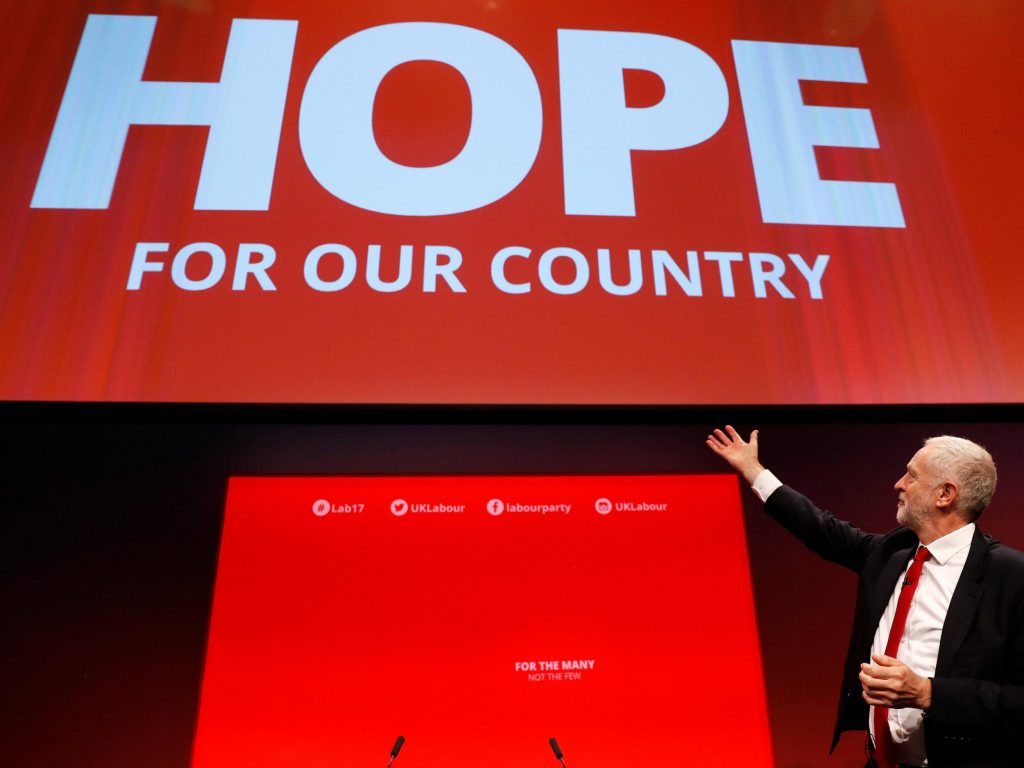The “Left” has become as integral a part of neo-liberalism as the rest of the liberal-democratic parties. Joe Biden is often referred to as “left” as are social democrats. How far does the Left have to move to the right until it is no longer left?
Ben Wray is a freelance journalist leading BRAVE NEW EUROPE’S Gig Economy Project. He also produces a morning newsletter called Source Direct on Scottish politics, which you can sign-up to here: https://sourcenews.scot/mailing-list/
Cross-posted from Source

You don’t have to be Jeremy Corbyn’s biggest fan to take serious issue with his suspension from the Labour party yesterday, you just have to have some commitment to basic principles of honesty, fairness and justice.
The party’s General Secretary David Evans has not actually been willing to even explain to the National Executive Committee, the party’s highest body, of the exact reason why Corbyn has been suspended, despite taking just an hour and a half after the former Labour leader was interviewed yesterday morning about the EHRC’s report to do so. So we can only make reasonable speculations about Corbyn’s supposed high crime.
The interview he gave saw the former Labour leader say that there is a problem of antisemitism in Labour, that there is no room for any antisemitism in the party, that one antisemite in Labour was one too many, but that he thought the public perception of the problem in the party was “exaggerated”. To evidence this, he cited a Survation opinion poll where the public thought one-third of Labour members were under suspicion of antisemitism, when the real figure was 0.3 per cent. In a statement released on his Facebook page, he said of the EHRC report that “while I do not accept all of its findings, I trust its recommendations will be swiftly implemented to help move on from this period” and that “one antisemite is one too many, but the scale of the problem was also dramatically overstated for political reasons by our opponents inside and outside the party, as well as by much of the media”.
Commenting on Corbyn’s suspension, Labour leader Keir Starmer said he won’t tolerate “the denial of antisemitism”, but Corbyn didn’t deny it, in fact what he said was the opposite of a denial – he explicitly said it is a problem, but that it has been exaggerated in some quarters for political gain. That’s clearly true and easily evidenced. To take the most obvious example, the Tories and right-wing newspapers were trying to exploit Jewish fears for political gain in the most appalling way in the week running up to the General Election last year; that was just patently obvious for anyone who wished to see reality.
The substance of the EHRC report – which is actually about the party’s complaints procedure and training processes in relation to antisemitism, not some grand verdict on whether the party was institutionally antisemitic under Corbyn – has been buried by the party leadership’s actions. Whichever official reason is eventually plucked out for the decision to suspend the former Labour leader, it will be irrelevant to the report itself. Corbyn’s suspension is straight forwardly a case of the party leadership being unwilling to brook internal dissent on what are not questions of racism and antisemitism, but questions of PR. It’s Starmer’s line, or you’re out. That is a highly intolerant and anti-democratic culture for a party to have.
It shouldn’t have to be said, but there is a huge chasm between disagreeing with someone’s view of the public perception of antisemitism in the Labour Party, and antisemitic behaviour. It’s a worry for democracy if the second largest party in the UK can’t distinguish between the two. First Past the Post means the UK is basically a two party system, so even if you are not a fan of Labour at all and feel the party is increasingly an irrelevance to Scottish politics, you should be interested in what happens to it. This deeply authoritarian manoeuvre to silence perfectly reasonable and civilised dissent from the party line should worry everyone.
Another story yesterday about the journalist Glenn Greenwald got me thinking about the importance of defending the right to dissent on the left. Greenwald, who has broken some of the most important stories of the past decade including the Snowden Files and corruption in Jair Bolsanoro’s Brazil, resigned from The Intercept yesterday, the media organisation he helped set-up in 2014. In his resignation statement, he said the final straw was The Intercept’s editors refusing to publish a story that contained criticism of Democratic nominee Joe Biden. He goes on to explain that The Intercept has like many media organisations swayed from its original mission statement whereby “the airing rather than suppression of dissent from mainstream orthodoxies and even collegial disagreements with one another” was to be encouraged not discouraged.
“Courage is required to step out of line, to question and poke at those pieties most sacred in one’s own milieu, but fear of alienating the guardians of liberal orthodoxy, especially on Twitter, is the predominant attribute of The Intercept’s [editors],” Greenwald adds.
Corbyn’s great failing appears to have been to have the courage to tell the truth. When the left stops believing in that, what does it believe in?


Be the first to comment